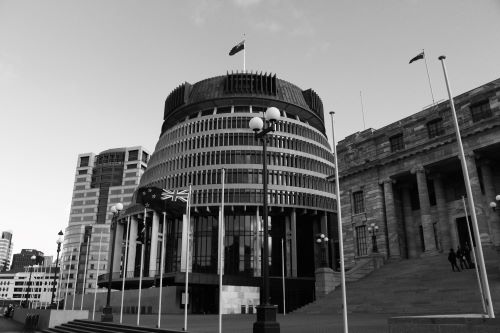 The National Party’s promise of tax cuts has certainly captured the public’s imagination this election. And the cost of living crisis is certainly hurting a lot of working New Zealanders. But is it just a good sound bite – more form than substance?
The National Party’s promise of tax cuts has certainly captured the public’s imagination this election. And the cost of living crisis is certainly hurting a lot of working New Zealanders. But is it just a good sound bite – more form than substance?
“Our plan is carefully targeted to ensure that those who will benefit the most are working New Zealanders. It’s about time they got some relief from Labour’s cost-of-living crisis and National will deliver that to them”, Christopher Luxon said.
Let’s break that down. It looks like that means:
-
-
- - Approximately $62.50 per person per week for an average-income family with children (captured by the headline grabbing $250 per fortnight)
-
- - Approximately $25 per person per week for an average-income household with no children ($100 per fortnight)
- - Approximately $10 per week for a full-time minimum-wage earner ($20 per fortnight)
And it comes with a big cost of $14.6 billion over four years; funded by controversial taxes such as a gambling tax, tax changes possibly fuelling the housing market, and disputed calculations.
Raising the minimum wage is another effective way of ensuring that working New Zealanders benefit, arguably with a much lower cost to the government’s books.
Since the Labour Party formed the government in 2017 it has raised the minimum wage from $15.75 to $22.70 per hour. For a worker on the minimum wage working 40 hours a week that was an increased wage of $278 per week over a 6 year period (or $556 per fortnight).
By contrast, when the National Party last formed a government in 2008 to 2017 it increased the minimum wage from $12.00 to $15.75 per hour. For a worker on the minimum wage working 40 hours a week that equated to an increased wage of $150 per week over a 9 year period (or $300 per fortnight).
Looking back further, some of our governments have come to power promising big changes that have affected workers.
The National Party formed a government in 1990 and introduced big changes to our employment laws with the introduction of the Employment Contracts Act in 1991. The ECA massively deregulated the labour market and did away with the system of national awards where industries had the same baseline pay and conditions. The changes meant that every worker would either be on an individual contract or under a single employer collective agreement.
When the Labour Party formed a government in 1999 it introduced the Employment Relations Act in 2000. While the ERA kept many of the underlying principles of the ECA it introduced the concept of “good faith” into employment relationships and promoted a framework for collective bargaining between unions and employers. It also introduced a more accessible dispute resolution process by promoting mediation.
Whilst the current Labour government has kept most of principles of the ERA intact, it has gone back almost full circle to before the ECA with the introduction of the controversial Fair Pay Agreements. These are again intended to set minimum standards for industries and they bear some resemblance to the old national award system.
Other recent changes that have had a positive impact on our working lives include the increase of our minimum annual leave entitlement from 3 to 4 weeks, increasing sick leave from 5 days to 10 days, and another public holiday celebrating Matariki.
Besides the proposed tax cuts for working New Zealanders proposed by the National Party, this time around the proposed changes impacting workers from the election policies of the bigger parties seem to be:
- National is promising to allow parents to take paid parental leave at the same time and abolish Fair Pay Agreements
- Labour is promising to provide two weeks paid partner leave for parents
- Act has quite a few policies, but the main ones are to promise to abolish Fair Pay Agreements, reintroduce 90 day trial periods for all employers allowing workers to be dismissed for no reason, reduce remedies for successful personal grievance claims and prevent contractors from challenging their status in court
- Te Pāti Māoridoes not appear to have any specific employment related policies
- The Greens have a comprehensive list of policies, but cherry picking these they include 5 weeks annual leave, extending paid parental leave to 15 months, and setting minimum entitlements to redundancy compensation
- NZ First policies have an anti-vaccine mandate focus by opposing vaccine mandates and compensating workers that lost their jobs due to Covid-19 vaccine requirements
Employment law is one area that has an obvious and daily impact on working New Zealanders. Employment provides a way to provide for New Zealanders to hopefully gain economic security and enjoy life. We may make fun of health and safety regulations, but when a loved one is killed or injured it is no laughing matter. We may make fun of the “nanny state” or the “fun police”, but when you or a loved one are discriminated against, bullied or harassed, again it is no laughing matter.
Voter memories tend to be short term, but employment and employment law matters. Not a headline that is capturing though? Read more

